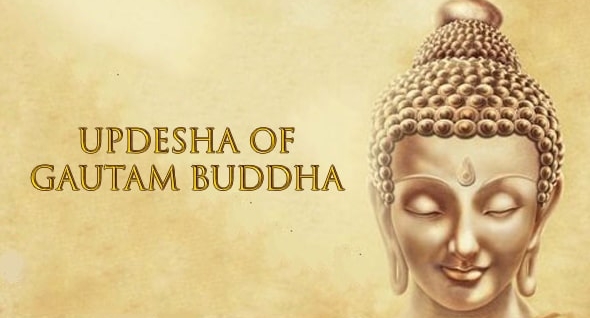
Mahatma Buddha's Personality - Around 563 BC, Mahatma Buddha was born in the Lumbini jungle near Kapilvastu. Shuddhodana, his father, was the Shakya Republic of Kapilavastu's ruler. Mayadevi was his mother's name. Siddhartha was Mahatma Buddha's childhood name. Astrology Advice Online, Siddhartha has been showing signs of intellect and compassion since he was a toddler. The king married his son to Yashodhara, the lovely and virtuous daughter of a Shakya chieftain since he found his son uninterested in worldliness. Rahul, his son, was also born to him.
"Today another link has been connected to the chain of my relationship," Siddhartha said loudly upon his birth. So he went to the jungle with his charioteer Chandak one night, leaving his wife and newborn infant in a drowsy condition and Rajaprasad behind. Mahabhinishkraman is the name of this event. He was around 30 years old at the time.
In pursuit of truth - After leaving home, he began roaming about looking for answers. He first adopted the austere brahmins' discipleship, studying the texts and philosophy, but this did not offer him peace. He performed a lot of penance as well, but he didn't get any understanding from it. Finally, he sat down under a peepal tree in Gaya, on the banks of the river Nairanjana. When the samadhi ended, a light emerged in his heart, and he discovered a way to end human misery. Since then, Siddhartha has been referred to as 'Buddha,' and the tree has been dubbed the Bodhi tree.
Buddha resolved to show the world the way of knowledge after preaching action enlightenment. Talk o Astrologer, First, he travelled to Sarnath, in modern-day Varanasi, where he reconnected with his former five buddies who had abandoned him. He made the five friends his followers by preaching to them in Sarnath for the first time. Dharmachakra Pravartan is the name given to this doctrine, and these five pupils are known as "Panchvargiya."
Mahaparinirvana - For forty-five years, Buddha preached nirvana from the palaces of India to the huts of India, and he died in 483 BC while preaching in Kushinagar. 'Mahaparinirvana' is the name given to this phenomenon. He was 80 years of age at that point.
Mahatma Buddha's Teachings
Mahatma Buddha's teachings are straightforward and practical. He used to deliver his sermons in plain English.
Mahatma Buddha's Teachings: Mahatma Buddha's teachings are straightforward and practical. He used to deliver his sermons in plain English. Mahatma Buddha's moral and philosophical teachings
1. What were Gautam Buddha's moral paths?
The 'Four Arya Truths,' as taught by Gautam Buddha, are extremely important. Coming up next are the four honorable bits of insight:
(a) Sorrow - The world is a sad place.
Life is terrible because of old age, sickness, and death, because of the separation from one's beloved and the combination of the unpleasant, the incompleteness of one's wishes and desires, and because of the separation of one's beloved and the combination of the unpleasant. Chat with Astrologer, This is a sad situation that affects everyone.
(b) Sorrow-community-
Gautam Buddha referred to it as the "community of sorrow," or "cause." He said that desire is the basis of sadness. Trishna is the Sanskrit word for devotion to worldly possessions and sensual pleasures. Increased desire leads to hubris, strife, hatred, and misery, among other things.
(c) Suffering-
He also mentioned the possibility of imprisonment. The abolition of desire puts a stop to birth, death, and all of life's tragedies. When all of a person's wants are satisfied, he or she achieves Nirvana and is free of sadness.
(d) The cessation of sorrow is in this world-
Buddha Ji also explained the path to nirvana or the cessation of suffering. To put a stop to suffering, he devised the 'Ashtangaik Path,' which consists of eight standards of behaviour. The following are the details:
(1) (सम्यक दृष्टि) Right perspective
(2) (सम्यक् संकल्प) Enough resolution
(3) (सम्यक् संकल्प) Proper speech
(4) (सम्यकर्म) Right action
(5) (सम्यक जीविका) Right livelihood
(6) (सम्यक उद्योग) Right industry
(7) (सम्यक् स्मृति) Right memory
(8) (सम्यक् समाधि) Right Memorial.